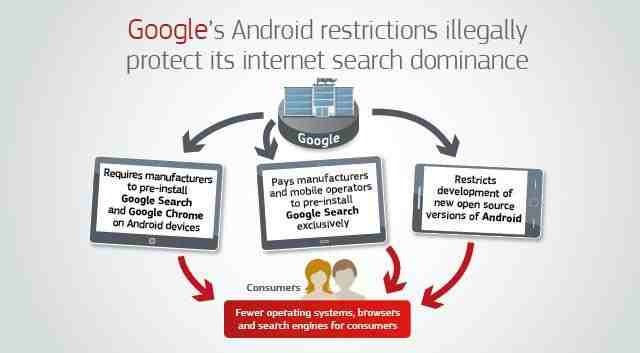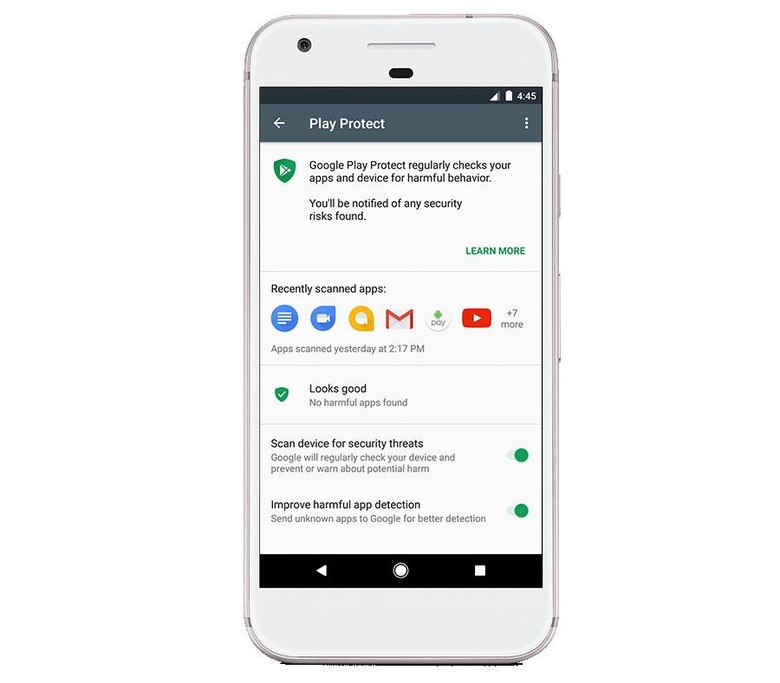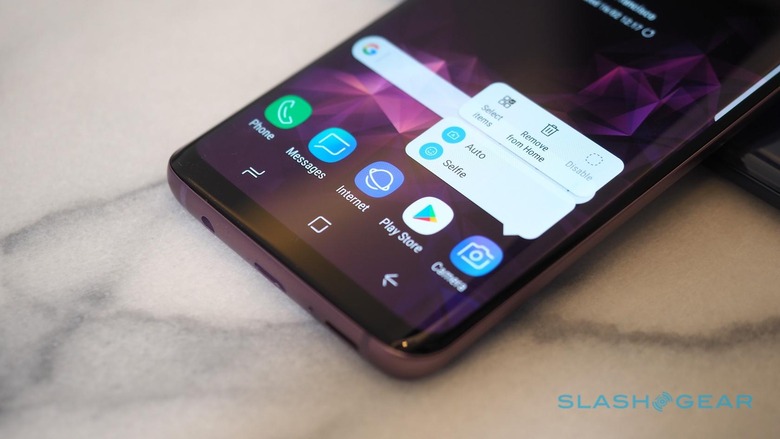Google EU Fine Is A Double-Edged Sword That Could Hurt Android
The European Commission just slapped Google with a $5 billion fine and gave it 90 days to clean up its act. The reason: Google's anticompetitive practice that used Android to practically force its Search service and Chrome browser on manufacturers and carriers to the detriment of rival apps and services. Like any issue of this magnitude, it's not a clear-cut case. And while the European Commission may have the best interests of the Android ecosystem in mind, its demands could end up causing Android harm in the long run as well.
Google does have an unfair advantage
It's only too easy to paint the likes of Facebook and Google as the villains in any story. That's not to say they're inherently evil. That's not to say they're blameless as well. While we may never be privy to the decision-making process that led to the headache that Google is facing now, the tech giant can't deny that it made some missteps along the way.

Being the maker of Android, Chrome, and Search naturally puts Google at an advantageous position. Whether it knowingly exploited that advantage to its profit, the EU says yes. Whether it actually harmed the Android ecosystem, in general, is still debatable. Because while the heart of the EU's case against Google revolves primarily around Search, it actually strikes at the heart of what has kept Android from falling into a thousand pieces: Google Play.
Google Play gameplay
Google Play is admittedly a double-edged sword in the Android platform. Yes, Google has practically created a "status quo bias", but that's not simply because Google forced it on everyone. It may have, but, at the same time, what it forced down on users' throats turned out to be what those users' wanted as well. And, yes, Google is now, subtly or not, using Google Play to keep app developers and even OEMs in line. The EU almost had that right.
The EU, however, may have neglected or opted to ignore an important role Google Play Services played in Android history. Can anyone remember a time when there were half a dozen or so Android app stores? Even today there still are, including ones specific to some OEMs. Half of these stores have become breeding grounds for malware and pirated apps. Google Play, for all its flaws, still offered better protection than some of those third-party app stores. That, in no way, disses these alternative app sources but very few can claim the ability to vet for the apps that pass through them. At best, they can say "proceed at your own risk".

Open for business
Part of the EC's verdict revolves around how Google has restricted the development of alternative versions of Android. Looking at the market, that conclusion seems ridiculous. Amazon's Fire OS has been in existence for years now. That others are not able to develop devices based on Fire OS is blamed on Google's practices, blocking Amazon from licensing its fork to other OEMs. The flip side to that story is that Fire OS is partly proprietary, just like Google's Play services and apps. And Amazon isn't exactly better or worse than Google in the monopoly game. The situation wouldn't have been better if things were different.
But one can also look at the other Android "forks" that don't use Google Play services. China has survived long without it. There continue to be variants, both free and proprietary, that put Android on devices Google would have never approved of. While some of these would probably love to have Google Play officially, there have been ways around those. Android remains an open platform and, ironically, the fact that you can still pirate apps and install them is proof of that.

As for pre-installing non-Google apps, that too is a bit vague. Yes, Google may require the apps to be pre-installed to meet its Google Play requirements, but they don't have to be the default ones either. Samsung, for example, has its own browser set as the default instead of Google Chrome, along with other non-Google apps. Perhaps Samsung paid to get its way, which is indeed something that should be looked into. But it does prove it's not impossible.
Fragmented but whole
Android's openness is both its strength and its weakness. It has allowed it to flourish in many ways but has also resulted in a mess. Google's Play Services have helped corral those fragmented pieces of the Android ecosystem together in three ways. One, it provided a smidgen of uniformity and security with Google Play Store and its security framework. For another, it pushed OEMs and app developers to support the latest Android versions rather than lingering on unsupported ancient ones. And, perhaps less known, it also provided "compatibility" features that allowed app developers and users to enjoy some of the latest features that may not be available for their older version of Android.

The EU sanction aims to make Android more open to competitors and rivals to Google's Search and apps. But, at the same time, it could also undo everything that Google, its partners, and the community have been working towards: defragmenting Android. Striking at Google Play doesn't just take away Google's potential to do harm, it could also weaken the still warm glue that is keeping Android together.
Wrap-up: The Golden Mean
There is probably some truth to the charge that Google has exploited its Android advantage to its own profit. It is Google, after all. At the same time, it's difficult to deny the benefits that Google Play has brought to the Android ecosystem. Google may indeed need to loosen up its restrictions or at the very least provide systems that, for example, would help OEMs and competitors set non-Google defaults, despite requiring them to keep Google apps installed. But such competitors, like alternate app stores and handset makers, should also step up to provide the same assurances and benefits that Google Play certified devices offer. As said, it's not a clear-cut case, and it's going to take more than 90 days to come up with a solution that isn't just a band-aid.
